Hurrah! We have arrived in Buenos Aires. We have both been looking forward to coming to this great city that we hope our great expectations will not lead to inevitable disappointment. But as we glided into the port on the ferry we were bathed in the bright sunshine of late spring, lovely warm temperature and the tall skyscrapers that announce a major city reflected the sunlight in their mirrored windows as if they wore sunglasses.
Inevitably, the city is not as we expected. I imagined it to have an old colonial, Spanish style and feel to it with shadowed streets of tall, high-ceilinged buildings occupied by macho men and dark haired beauties. But the capital has been virtually rebuilt since the beginning of the 20th century and its oldest buildings date from the early 1900s. The centre has maintained the original lay-out since its foundation and so the streets are relatively narrow and mostly one-way. Its original name, Santa Maria del Buen Ayre, was a recognition of the good winds that brought sailors across the ocean to the New World.
Thus it is a modern city, still with grand buildings (some of which like the vast Opera House undergoing extensive renovation) and large open spaces. About one building in ten looks old and original sandwiched between newer more purpose-built housing or offices and the city is very green with trees lining most roads breaking up the usual concrete jungle. It is difficult to distinguish a distinct feel or flavour to Buenos Aires that is markedly different from many of the great European capitals and if parachuted into the heart it would be impossible to say with certainty ‘I have landed in Buenos Aires’. It is a kind of hybrid of Paris, Madrid, Milan and London with a dash of Manhattan. Nevertheless, it is a wonderful place and we have been enjoying ourselves walking the sights and fighting through the crowds of shoppers looking for Christmas presents. Papa Noel is very much in evidence but without the in-your-face commercialism that pervades the Christmas holiday back home. There are Christmas trees, baubles and lights but no sleighs, snow or open fires. It feels like Christmas time but without the pressure and, mercifully, without the constant boring old tunes that get aired every year which we have come to love to hate. Not that it really feels like Christmas to us in any case; the weather is warm, decorations are sparse and advertising very low key.
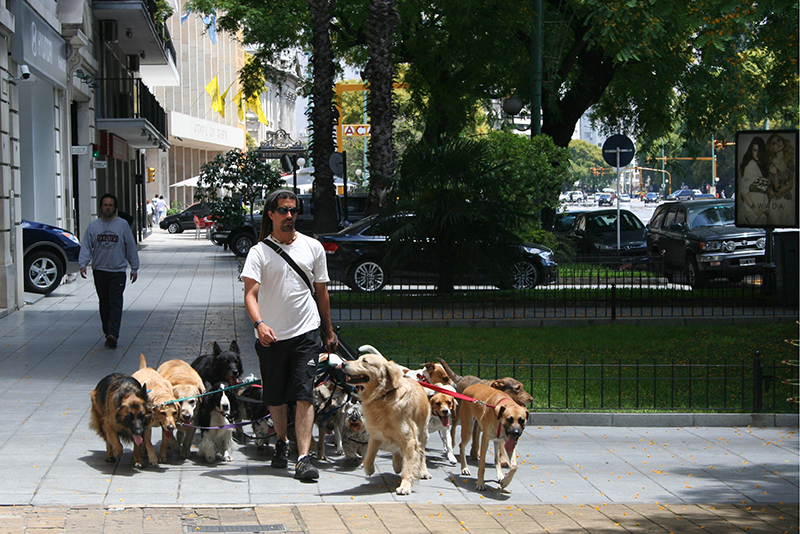 Along the avenues and in many of the parks we get treated to one of the city’s more characteristic sights: the ‘paseaperros’, or professional dog walkers. Joggers holding on to seven or eight prized pedigrees are surprising enough, but these dilettantes are held in contempt by the beefy specialists who confidently swagger along towed by up to twenty dogs, some of whom are bigger than their leaders. It is a mystery how they don’t get completely tangled up in all the leads or forget how many animals they control and so lose the odd one. These invariably athletic young men (and sometimes young women as well) are not just paid to take all manner of canines for a walk, with the inevitable pit stops along the way, they also have to groom them and inspect them for any signs of ill health. However, they are not all as dedicated as might be thought; we saw eight dogs tied to a large branch of a tree and abandoned whilst their walker exercised elsewhere.
Along the avenues and in many of the parks we get treated to one of the city’s more characteristic sights: the ‘paseaperros’, or professional dog walkers. Joggers holding on to seven or eight prized pedigrees are surprising enough, but these dilettantes are held in contempt by the beefy specialists who confidently swagger along towed by up to twenty dogs, some of whom are bigger than their leaders. It is a mystery how they don’t get completely tangled up in all the leads or forget how many animals they control and so lose the odd one. These invariably athletic young men (and sometimes young women as well) are not just paid to take all manner of canines for a walk, with the inevitable pit stops along the way, they also have to groom them and inspect them for any signs of ill health. However, they are not all as dedicated as might be thought; we saw eight dogs tied to a large branch of a tree and abandoned whilst their walker exercised elsewhere.
The one thing that has met expectation is the macho male. It becomes most notable in the shops and sometimes the restaurants where the characteristic does not lend itself to customer service. We were in a bookshop trying to work out the logic of Argentinean road maps that do not flow from one page to another (why cannot they have the simplicity of European books?) and after 20 frustrating minutes of frustration, Debbie sought the help of one of the assistants. He laughed at her and told her to talk to the security man on the door! As you can imagine, that did not go down very well and, following some stern words that were not welcomed, he was unable to work it out himself (and neither could anyone else).
The macho personality is very evident in the tango. I had been told that it was a dance that was easy for girls as the man makes all the moves but that does not seem the case to me. The chap stands proud and erect, dressed in black, and (hopefully) glides around while the girl drapes herself over him in adoring fashion, jumping, falling and wrapping her legs around all parts of his body in a very athletic and impressively flexible movement that captivates the attention. It is the girls who we notice not the men, but it is the men who get recognized as great dancers. Debbie is keen for us to give the tango a go but, fortunately for all concerned, this has not so far happened, James being a dancer of limited talent and the floors probably insufficiently reinforced.
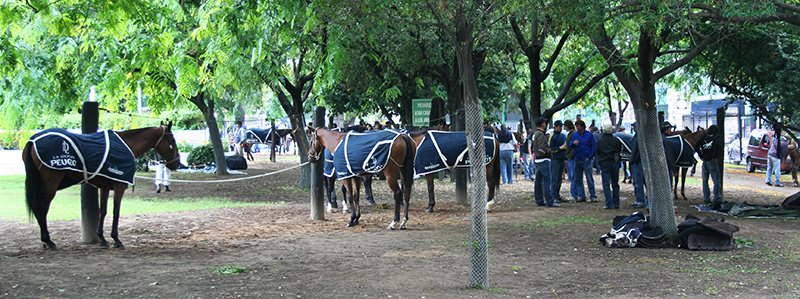 One of the great events in Buenos Aires at this time of year is the polo. Another of the many games invented by the Brits that have been adopted by Johnny Foreigner who now takes it far too seriously and is much better at it than us. There are 4 players in a team and all have handicaps, a ten goal handicap representing the very best players in the game. We originally planned to watch the grand final of the polo played in the national polo stadium in the heart of the city. The weather had other ideas and, as a result of an unusually wet spring, the programme had slipped a week and we now had tickets for the semi finals instead. Since we have been in the city, we have been treated to unbroken sunshine but the morning of the game we awoke to a sky full of cloud and intermittent rain but surely not enough to postpone things after such good weather. We were both very excited at watching the best players in the world battle it out for a place in the final next week. In one team, La Dolfina, all the players were 10 handicap and their opponents, La Aguada, all brothers, could ‘only’ muster one 10 handicapper and three 9s. Neither of us had seen such a high class game (77 handicap out of a total of 80); the Sotogrande Gold Cup has a cumulative limit of 20 handicap for the whole team so this promised to be a special event.
One of the great events in Buenos Aires at this time of year is the polo. Another of the many games invented by the Brits that have been adopted by Johnny Foreigner who now takes it far too seriously and is much better at it than us. There are 4 players in a team and all have handicaps, a ten goal handicap representing the very best players in the game. We originally planned to watch the grand final of the polo played in the national polo stadium in the heart of the city. The weather had other ideas and, as a result of an unusually wet spring, the programme had slipped a week and we now had tickets for the semi finals instead. Since we have been in the city, we have been treated to unbroken sunshine but the morning of the game we awoke to a sky full of cloud and intermittent rain but surely not enough to postpone things after such good weather. We were both very excited at watching the best players in the world battle it out for a place in the final next week. In one team, La Dolfina, all the players were 10 handicap and their opponents, La Aguada, all brothers, could ‘only’ muster one 10 handicapper and three 9s. Neither of us had seen such a high class game (77 handicap out of a total of 80); the Sotogrande Gold Cup has a cumulative limit of 20 handicap for the whole team so this promised to be a special event.
Before the start, the players strutted their stuff and generally showed off to the crowd while grooms warmed up the replacement teams of ponies up and down the touchlines. The crowd filtered into their seats and whistled at the team that carried their favour and everything was set for a noisy, sweaty and competitive event. Some 52 seconds after the start the game stopped for a penalty, the two captains came together and began having a chat with the umpires, waving polo sticks at the far side of the pitch in a fashion that suggested something was seriously wrong. The crowd, sensing a delay, began whistling in derogatory fashion as the umpires went off to consult with higher authority. Then the announcement came: it was too wet to play polo!
While having some sympathy for any concerns about the wellbeing of millions of dollars worth of highly tuned polo ponies, we were not at all impressed. What had happened to the macho spirit of the Argentine male that a few drops of water could make them turn completely gutless? What a bunch of poofs. I would have played.

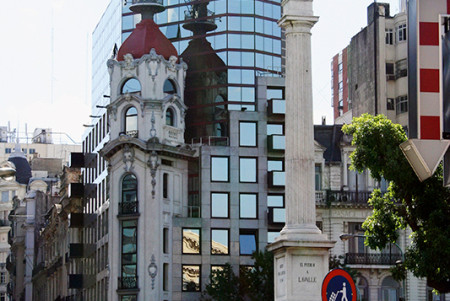
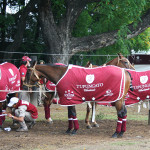
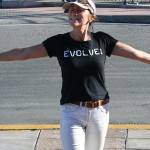
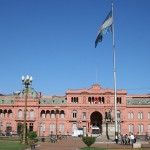
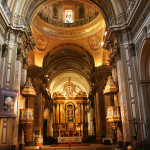

No comments yet.